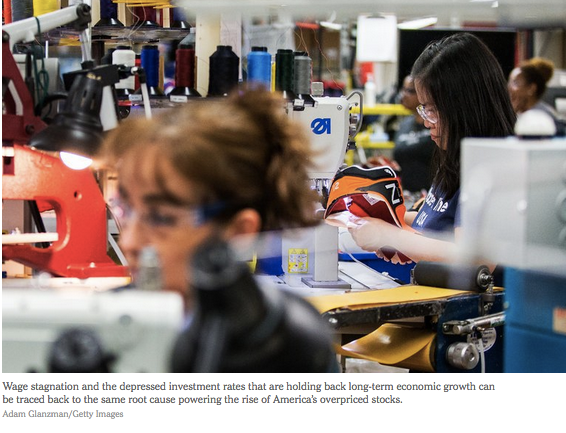Stocks are too expensive.
This is not a market forecast. I wouldn’t be particularly surprised if the Dow shrugged off its recent turbulence and continued its long upward thrust. What I contend is that if the American economy behaved in the way that most economists say market economies should, stocks would in all likelihood be cheaper.
It is a grim proposition. Wall Street’s titans might welcome the fact that equity prices have grossly exceeded what a well-functioning, competitive economy should deliver. But for almost everybody else, it amounts to a disaster. From wage stagnation to the depressed investment rates that are holding back long-term economic growth, many of the fault lines running through the American economy can be traced back to the same root cause powering the rise of America’s overpriced stocks.
Consider a few facts. The average financial wealth of American households — the market value of housing, stocks, bonds, business assets and the like, beyond their liabilities — has grown much faster than the nation’s income over the last half-century.
This would not be weird were American households saving more and investing their savings in productive ventures. They are not. The personal savings rate has declined sharply. The ratio of the capital stock — the value of factories, machines and such — to the nation’s economic output has actually declined a little since the 1970s.




